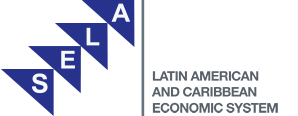INTRODUCTION
In view of this scenario, the issue of regional integration in Latin America and the Caribbean gains special interest, since its potentials have never been fully tapped. In addition, the current recession or stagnation in developed countries has led to a crucial relation among investments, exports and participation in global value chains, while huge strides have been made in terms of interconnection among the countries of the region thanks to the progress made in information and communication technologies, transportation and trade liberalization. Thus, at present, we have a stronger regional market, which tends to be favoured by situations such as an increase in its population and a great expansion of its middle class.
However, the main structural problems that have historically plagued the region still persist, such as the gaps in productivity with respect to developed or industrialized economies in Asia, a high structural heterogeneity among the 33 countries of the region, a low diversification of production and an inequitable distribution of income.
For the region to undertake a new course in a cooperative way, shared policies for productive and industrial development are required, by adopting a vision of sustainable development, promoting technological development of the various productive areas, exploring new niches to take advantage of the advances in research and development (R&D), creating and integrating productive chains in the region, developing suppliers and facilitating the financing of productive projects, especially for SMEs. Of course, such a process must be complemented by deepening trade liberalization and constructing transportation and communications infrastructure, while adopting strategies for the promotion of intra-regional investment and mutual trade, both in goods and services.









